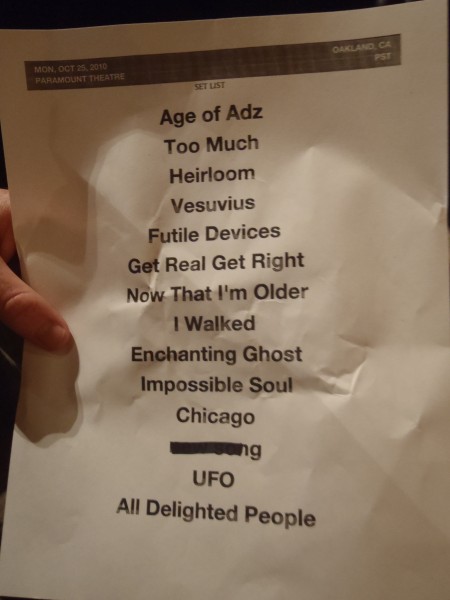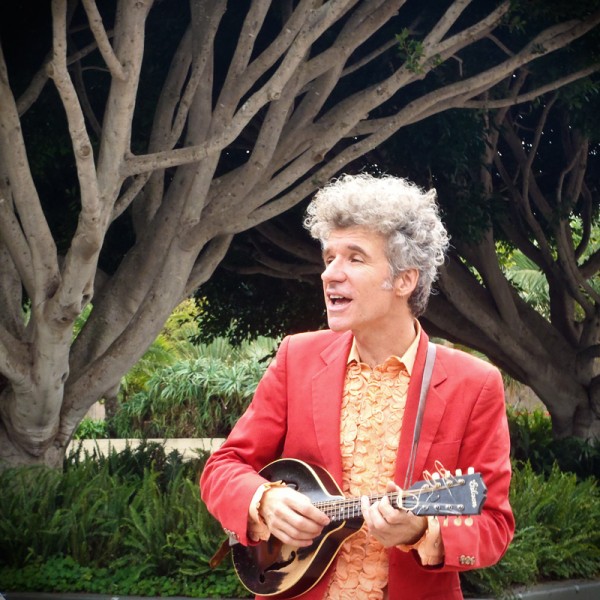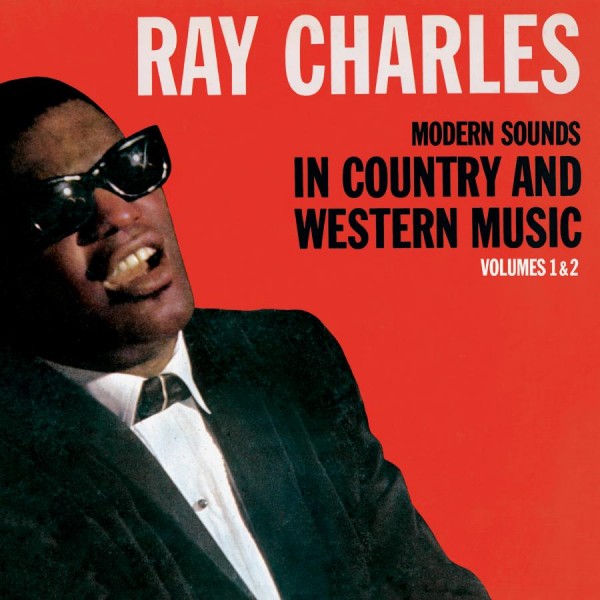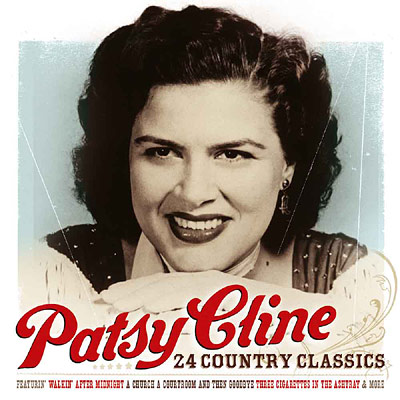October, 2010 Archives
Oct
Mumford and Sons–Soundcheck Songs
by Lefort in Music

Given that it’s Sunday, check out these new Mumford and Sons songs captured live. On one, they claim to have written the song during that day’s soundcheck. What’s the big deal? We wrote two today while washing the car.
Oct
Sufjan Stevens, Take 2
by Lefort in Music

For a great additional report including the Tuesday night show at the Paramount, check out the post over at Birth is Just a Chorus. The supplemental reading at the bottom of that post is commendable.
Photo by Hannah Lefort

Oct
The Adz Are Against That Ole Banjo — Sufjan Stevens at the Paramount Theatre
by Lefort in Music
Photos by Hannah Lefort
Imagine what delighted people we were when we wrangled orchestra pit tickets for Sufjan Stevens’ sold out show at the Paramount Theatre [sic] in Oakland this past Monday, June 25th. We had memorized his fecund songbook from “Seven Swans” to “Greetings from Michigan” to “Come on Feel the Illinoise,” and had heard telling tales of his phenomenal live performances. Unfortunately, Sufjan had not toured in five years, and we had missed his last set of scattershot mini-tours before he took a sabbatical from straight songwriting and touring, and went off to compose orchestral maneuvers in the light (Stevens eventually recorded an orchestral composition entitled “BQE”).
So we excitedly ventured up to Oakland at noon on Monday, picked up some UC Berkeley friends (Lexi and Patrick), grabbed a stuffed pizza from Zachary’s and made our way to the Paramount, where we met Justine and her band of BART brethren, and into the theater we went.
We sifted through DM Stith’s pleasant, four-song solo set (with its complex acoustic fingering and chord progressions, and Pentangle-ish ambiance), and then settled in to wait for the headliner to take the stage. We had seen the setlists from Sufjan’s tour and thought we had a feel for how the show would progress. Shows how wrong you can be.

Sufjan and his 11-member backing troupe drifted onto the stage, and Stevens stepped up to the microphone and announced, “My name is Sufjan Stevens, and I’m your entertainment for the evening.” And entertaining he would be.
Given the prior setlists, we waited for what we believed would be the finespun Seven Swans. So we were somewhat surprised when, instead of the softer, banjo-inflected Seven Swans, we heard the trombones, flute-effects, drum and bass kick in heavy, and the high group vocals lift, all of which heralded the title track from his brand new record, “The Age of Adz” (pronounced “Odds”). With its refrain, “Eternal living!” the vocals soared and the horns provided powerful fanfare, and the new Sufjan stepped out boldly. To begin the show with Age of Adz instead of a “transition song” from the days of yore turned out to be a perfectly fitting move, which paid huge dividends this night, and set the stage for a performance focused primarily on his copiously-complex and yet beautifully-melodied new compositions. The ten-minute Age of Adz immediately gave great contrast between the new and old Sufjan. Though the beautiful bombast begins the song, it segues from that “Revelations Soundtrack” to the sweet silences and sequences of “Gloria, Gloria, Victoria, Victoria” and “when I live, when I live, I’ll give it all I’ve got” before finishing with the heralding-choir effects. The song provides a stunning and fitting ebb and flow from the new to the old and back again that broadcasts a new era for Stevens. And we couldn’t be happier.

Throughout the two-hour, 13-song show the stage was bathed in audacious Adz-oriented lighting with a screen filled with Adz-animation and graphics, and the 11-member group. The two drummers were the perfect contrast and counterpoint, with the quickened top-end dominated on the right side and the bottom handled with aplomb on the left. To our ears the two trombonists added supremely to the evening, conveying both phantasmic fanfare and warmth, and filling the interstices perfectly. And, of course, Sufjan contributed mightily with his “little voice” (as he dubbed it), guitar and synth-board contributions. Stevens sells his vocals short since we were impressed by his ability to hit all the notes and then some throughout, and by his ability to convey both the epic and the perfectly private. And the female singers’ vocals and dancing were paired perfectly to the proceedings, not to mention DM Stith’s piano-playing acumen. The troupe bounced and pantomimed around the stage all evening, providing stellar sonorous and visual accompaniment. And the group’s clarion call was provided by the best sound we have ever heard live, with clarity and deft dynamics. Clarity, clarity!! The audience sat in reverence throughout, and we even noticed a few tears shed during the opening song. Stevens evokes his audience’s emotions well.

The setlist (see below) naturally focused on the new record, moving next to the comparatively-pop (but still seven-minute-long) “Too Much” with its refrain that “there’s too much riding on this,” wherein we sense the performer’s anxiety in having to meet the world’s high expectations. He then quieted down with the throwback, Heirloom (appropriately titled) off of his recent “All Delighted Peoples” EP. It was a quieter moment that hearkened back to his banjo-and-hush days (sans banjo, which sat unused on the stage the entire evening). Next up was one of our favorite moments of the show, the moving, powerful Vesuvius, with its “chorus” of “Sufjan, follow the path, follow your heart,” which helps to answer his audience’s question as to why he’s not still composing and performing the simpler, quieter songs of yore. He simply has to progress, like all of us. We love the flute/recorder sounds on Vesuvius that echo the Peruvian instruments in Paul Simon’s El Condor Pasa (a further example of Stevens’ recent homages to Simon heard more on “All Delighted Peoples”). And then it was back to the acoustic with the delicate “heirloom” of Futile Devices, a delightfully simple love ballad found on the new album, including its touching opening line: “It’s been a long time since I memorized your face.” Throughout the concert we sensed that the song sequencing was meant to help explain his sudden musical shift and new mode. Mission accomplished.

Up next was another of our favorites off the new record, Get Real, Get Right, with its refrain “Get real, get right with the Lord,” followed by Now That I’m Older, with its poignant lyrics and angelic voices (done to perfection by the two female singers). The powerful I Walked followed, in which we hear a lover’s excuses, justifications, and gracelessness, and the demise of a relationship. Despite the lyrical heaviness, I Walked is a powerful pop song, and was done to perfection this evening. He then moved to the quieter, haunting Enchanting Ghost, off of “All Delighted Peoples.”
Nothing that came before could prepare us for what followed: all 25-minutes of Impossible Soul, which he described after as his “magnum opus.” We had anticipated Stevens might redact the less melodious, more experimental portions of Impossible Soul for concert settings, but as the song says: “Seems [we] got it wrong.” Though the three to four melodic themes were well represented throughout the song, the ensemble stretched out into even more experimental and challenging modes (including Stevens’ outlandish auto-tune vocal interludes). And dancing prevailed on the stage. Late in the song the audience finally rose to dance along with the troupe, and we sensed that the throng was finally “getting it,” and thereafter was much more responsive. Following the song’s end, Sufjan commented that Impossible Song is “The love song of all love songs.” An audience member humorously requested that they “play it again!”

Instead, Sufjan chose to end the set with his great song, Chicago, off of “Illinoise.” The crowd was now in full movement and bellowing the “All things go” chorus throughout. ‘Twas a great end to the set.
For the encore, we were treated to Sufjan alone on piano singing Concerning the UFO Sighting. UFO was captivating with its “revenants” and “three stars,” though it felt a bit perfunctory. Again we sensed Stevens’ temporary (hopefully) loss of allure for his old songs. And unlike in many other recent shows, there would be no Casimir Pulaski or John Wayne Gacy, Jr. this night. Stevens instead surprisingly broke out a 15-minute rendering of All Delighted People to close the encore. We were initially disappointed to not hear some more of our favorites from the past, but the breadth, depth and complexity of ADP won us over completely. We love the repeated use of Paul Simon lyrical elements (“And the people bowed and prayed to the neon god they made,” and “In restless dreams I walked alone”). Like Impossible Soul, ADP was, in a word, epic.

As much as we liked Stevens’ banjo-and-hush era, we completely embrace the current, more-complex, ensemble-rave era, and look forward to future Sufjan maneuvers.
Our only concern at all is the philosophical bent of this record and what is to come. Sufjan spent a long interlude explaining the “prophet” protagonist behind the new record, Prophet Royal Robertson. To our ears, we’re not sure this Prophet is worthy of emulation or expounding, but we’ll defer to Stevens, knowing that to date he’s managed to sing the right songs at the right time. Time will tell as to his next steps. But we trust we’ll be there with him to enjoy the ride.

For those playing along at home, please consider skipping the next stage of our trip: we were asleep by midnight and on the road by 4am to make it back to Santa Barbara at 9am. Tuesday was Shatterday.
For a great additional report including the Tuesday night show at the Paramount, check out the post over at Birth is Just a Chorus. The supplemental reading at the bottom of that post is commendable.
Oct
Who’ll Love a Lad Dan Zanes?
by Lefort in Music


We’ll love the lad Dan Zanes.
Around 1o years ago, Dan Zanes and his wife, Paula Zanes, had a baby and moved to New York City. Zanes subsequently began playing music with a group of other fathers that he had met in the West Village. These fathers playing music together eventually became The Wonderland String Band, which played at parks and parties. Given the popularity of the performances, Zanes decided to commit the songs to tape and then CD.
We and our kids got sucked into Dan Zanes’ (formerly of rock band, Del Fuegos) zany, kid-friendly music around eight years ago with his Grammy-award winning record, “House Party,” with it’s phenomenally fun songs House Party, Waltzing Matilda and a bounty of other tunes.
And then we fell head-over-heels for his other CDs, including the great, great Carl Sandburg homage, “Parades and Panoramas.”
So we were very happy to head out and check out Zanes and his fine band’s show at Campbell Hall at UCSB yesterday. They played a dance party set that was loved by all in attendance. Given Zanes’ love for latin music, he rehearsed (at Peabody School on Saturday) with and brought out a great local young Mariachi troupe and a young Veracruz folk music ensemble to help fill out the sound and color of the day. What a great move! At show’s end, Zanes ended with a beautiful waltz sung by the entire audience as Zanes and all the musicians came down off the stage and snaked through the audience, eventually making their way out the doors to the courtyard where Zanes and crew (as seen above) and the audience finished singing the song accappella. It was a fitting end the show.
What we love about Zanes (as opposed to other kids’ music performers) is that, like Pete Seeger, he recognizes the great worth of American (and Americas’ and other countries’) folk songs. While his shows are kid-friendly, there is always a song or two to pull at the heart-strings of the older-children (adults) in the audience because Zanes always mixes in great old songs that carry the weight of the centuries and the world on their shoulders. And so it was yesterday.
Check out a couple of songs below off of “Parades and Panoramas” and pick up some of his great recordings. We’ll leave you to find and purchase the “party songs,” but instead give you a flavor below for the depth of his music.
Dan Zanes–Wandering
Yep, it was in fact a “red-headed woman made a wreck out of me.” Thankfully.
[audio:https://www.thelefortreport.com/blog/wp-content/uploads/01-Wanderin.mp3|titles=01 Wanderin’]Dan Zanes–The Shantyman’s Life
[audio:https://www.thelefortreport.com/blog/wp-content/uploads/10-The-Shantymans-Life.mp3|titles=10 The Shantyman’s Life]Dan Zanes–Lonesome Road
[audio:https://www.thelefortreport.com/blog/wp-content/uploads/18-Lonesome-Road.mp3|titles=18 Lonesome Road]Dan Zanes–When The Curtains Of Night Are Pinned Back
[audio:https://www.thelefortreport.com/blog/wp-content/uploads/24-When-The-Curtains-Of-Night-Are-Pinned-Back.mp3|titles=24 When The Curtains Of Night Are Pinned Back]Oct
The Real Country, No. 8
by Lefort in Music


Ray Charles was one of the all-time, undisputed greats of music. Charles was a genre-crusher, dominating the gospel, R&B, pop, jazz and, yes, country music worlds during his career. In 1962 Charles decided to give one of his formative influences a try (despite strong advice from his trusted advisors and others to the contrary) and put out a country music album, which came to be titled “Modern Sounds in Country and Western Music.” The record quickly became a huge critical and commercial success and brought Ray Charles further into the mainstream. This album is now considered by many critics to be one of the landmark albums in American music. Amongst other things, the album’s integration of soul and country music distorted racial barriers in popular music at the height of the civil rights struggles.
One of our favorites amongst Ray’s country songs remains the lead single off that album, I Can’t Stop Loving You, which was certified as a gold record in July 19, 1962.
Ray Charles–I Can’t Stop Loving You
[audio:https://www.thelefortreport.com/blog/wp-content/uploads/03-I-Cant-Stop-Loving-You.mp3|titles=03 I Can’t Stop Loving You]And below from the great Dick Cavett Show.
http://www.youtube.com/watch?v=WU-MBTW86U8
Oct
The Real Country–No. 7
by Lefort in Music

Patsy Cline took the country world by storm back in the early 60s when she got together with producer Owen Bradley. Bradley combined Cline’s soulful vocals with great songs and then mixed in some populace-palatable strings and arrangements to create a hugely popular phenomenon that set the standard for women to come in country music. Unfortunately her career was cut short when she died in 1963 at age 30 in a private airplane crash at the height of her career.
We have always loved her expressive vocals and delivery. One of our favorites of hers (amongst many) is She’s Got You. The song’s writer, Hank Cochran, has been quoted as remembering calling Cline up to tell her that he’d just written her next number 1 hit. She told him to come over to her house with a bottle of liquor and play it on the guitar for her and friend Dottie West. Cline was moved by the song’s lyrics and loved the song so much that she learned it that night, called up her manager and producer to sing it to them over the phone. They then recorded it at their next recording session,which was rare since Cline and Owen Bradley often disagreed about song selection. This time, they both agreed they had a hit and immediately cut the song. We particularly like her phrasing throughout and the heartfelt pauses at 1:13 and beyond.
Patsy Cline–She’s Got You
[audio:https://www.thelefortreport.com/blog/wp-content/uploads/08-Shes-Got-You.mp3|titles=08 She’s Got You]
Oct
Wolf Parade Wolves Down The Killers’ Brandon Flowers
by Lefort in Music

We have one of those multi-CD jukebox’s in our car. So after we load it up and drive off, specifics will elude us and songs will often later waft over the airwaves as oral apparitions. We may in fact have no idea what we are listening to (hey, hey, quiet over there!). We’ve been driving around recently with a semi-anonymous stack and one such ghost-song has been haunting us every time we hear it. Others too have asked about this ghost, usually inquiring, “Is that the new Brandon Flowers or some Killers b-side”? Not wanting to appear senile, we have guessed/lied (guilty, your honor) and said, “new Brandon Flowers.” We finally pulled the ghost-box out recently to switch CDs and discovered to our amazement and amusement that the “new Brandon Flowers” is in fact Wolf Parade’s great new and poignant break-up song, What Did My Lover Say (It Always Had To Go This Way), off their latest phenomenal record, “Expo 86”.
Wolf Parade is the ridiculously talented and prolific band from Montreal (again, what’s in the water up there?). In addition to having put out three CDs of their own, the members of Wolf Parade are also key planks in a raft of other great bands (Frog Eyes, Sunset Rubdown and, our favorite, Handsome Furs). More on the Handsome Furs another day.
We have heard keyboardist Spencer Krug give some inspired vocal deliveries in Wolf Parade’s past, some of which smacked of Modest Mouse’s Isaac Brock and at other times of interpolated Interpol. But this is the first time we’ve heard him come out and take on Brandon Flowers directly and de-flower him completely.
This song has given us a serious case of lupus (canis, that is).
We love the chorus at 1:38 and after, and then we hang on the bolded stanza below that begins at 2:42 and finishes perfectly with the “la la lala la la lala” bit at 2:53. And what’s not to like with the howling chant that ends the song beginning at 4:59? Lyrically, this is the usual fine job by the band, but we especially like “giant shining earrings against the cheek of the sea.”
“What did my lover say
when she was driving with you?
I could not see her face
from my new bed.
I don’t think I should be sorry
for things I do in dreams.
Just like the tumbling birds come tumbling down.
I got a sandcastle heart
made out of fine black sand.
Sometimes it turns into glass
when shit gets hot.
I wonder if all the beaches,
in all your holiday towns,
will turn to giant shining earrings against the cheek of the sea
When finally this supernova goes down.
Just like my lover said,
see,
It always had to go this way.
It always had to go this way.
It always had to go this way.
It always had to go this way.
I sleep all night with the light on,
and dream about the sun.
Maybe because of the light,
Maybe because of the sun.
I got a friend who’s a genius
nobody listens to him.
I got some friends that got famous,
la la lala la la lala.
I don’t think I should say sorry
for things I do in dreams.
Some people live like they’re falling,
some people die in their sleep.
It always had to go this way.
It always had to go this way.
It always had to go this way.
It always had to go this way.
Wolf Parade–What Did My Lover Say? (It Always Had to Go This Way)
[audio:https://www.thelefortreport.com/blog/wp-content/uploads/07-What-Did-My-Lover-Say-It-Always-Had-To-Go-This-Way.mp3|titles=07 What Did My Lover Say (It Always Had To Go This Way)]
Oct
“We” Aspire to Be Your Musical Tapeworm
by Lefort in Language, Music


Given our use of the “editorial We” on The Lefort Report, and our love of language, we enjoyed a recent article by Ben Zimmer on such usage that appeared in the New York Times Magazine. You can find it here and set forth below. At a minimum, we have a new mission statement (the title of this post).
Enjoy, all you word-freaks.
“On Language
We
By Ben Zimmer
Published: October 1, 2010
Theodore Rockwell, who served as technical director for the U.S. Navy’s nuclear-propulsion program in the 1950s and ’60s, shared a telling anecdote about his onetime boss, the famously irascible Adm. Hyman G. Rickover. “One time he caught me using the editorial we, as in ‘we will get back to you by. . . .’ ” Rockwell recalled in his memoir, “The Rickover Effect.” “He explained brusquely that only three types of individual were entitled to such usage: ‘The head of a sovereign state, a schizophrenic and a pregnant woman. Which are you, Rockwell?’ ”
Related
Rickover was hardly alone in his abhorrence of the editorial we — so called because of its usage by anonymous opinion columnists. In fact, his barb has been told in many different ways over the years. Consider another volatile personality, Roscoe Conkling, who served as senator from New York after the Civil War. In 1877, Conkling objected to how the new president, Rutherford B. Hayes, overused the word we, and The St. Louis Globe-Democrat reported his rejoinder: “Yes, I have noticed there are three classes of people who always say ‘we’ instead of ‘I.’ They are emperors, editors and men with a tapeworm.”
Conkling’s formulation was picked up by we-haters far and wide. The trifecta of “kings, editors and people with tapeworm” has been widely attributed to Mark Twain, but like so many witticisms credited to him, there’s no record he ever said it. It’s also unlikely that Henry David Thoreau ever made the remark once ascribed to him: “We is used by royalty, editors, pregnant women and people who eat worms.”
Worms, or more specifically tapeworms, figure prominently in we-related humor. The earliest known joke to combine parasites and pronouns comes from George Horatio Derby, a humorist from California who assumed the pen name John Phoenix. “I do not think I have a tapeworm,” he wrote in 1855, “therefore I have no claim whatever to call myself ‘we,’ and I shall by no means fall into that editorial absurdity.”
What is it about the presumptuous use of we that inspires so much outrage, facetious or otherwise? The roots of these adverse reactions lie in the haughtiness of the majestic plural, or royal we, shared by languages of Western Europe since the days of ancient Roman emperors. British sovereigns have historically referred to themselves in the plural, but by the time of Queen Victoria, it was already a figure of fun. Victoria, of course, is remembered for the chilly line, “We are not amused” — her reaction, according to Sir Arthur Helps, the clerk of the privy council, to his telling of a joke to the ladies in waiting at a royal dinner party. Margaret Thatcher invited mocking Victorian comparisons when she announced in 1989, “We have become a grandmother.”
Nameless authors of editorials may find the pronoun we handy for representing the voice of collective wisdom, but their word choice opens them up to charges of gutlessness and self-importance. As the fiery preacher Thomas De Witt Talmage wrote in 1875: “They who go skulking about under the editorial ‘we,’ unwilling to acknowledge their identity, are more fit for Delaware whipping-posts than the position of public educators.”
Given the accumulated resentment of “nosism” (using we for I, from the Latin pronoun nos), it’s little wonder that modern literary writers have rarely tried to write narratives in the first person plural. But the device of collective narration has worked effectively on occasion, from William Faulkner’s “Rose for Emily” to Joshua Ferris’s “Then We Came To the End.” Most recently, Lisa Birnbach has taken the nosist route in “True Prep”,” her 30-year follow-up to “The Official Preppy Handbook.” (Opening lines: “Wake up, Muffy, we’re back. O.K., now where were we?”)
The royal and editorial we are examples of the exclusive we, meaning that the person being addressed is not included in the scope of the pronoun. English, like many languages, uses the same word for the inclusive first-person plural, encompassing the notional “you” along with “me.” The inclusive we seeks out a bond of empathy or common understanding between the speaker and the receiver of a message. Writers rely on it to establish rapport with readers, and teachers with students (“as we shall see”). But this is not always a welcome rhetorical move, especially when it comes across as pedantic or condescending. At worst, it can recall the we of caregivers for the very young and very old: “How are we feeling today?”
The overreaching effect of the inclusive we has sparked its own humorous traditions. In August 1956, the Los Angeles Times columnist Gene Sherman introduced into print what was already a well-traveled story about the Lone Ranger and his faithful sidekick, Tonto. Surrounded by “wild, screaming Indians,” the Lone Ranger desperately asks Tonto, “What will we do?” Tonto replies, “What do you mean ‘we,’ paleface?” Later versions changed “paleface” to “white man” or “kemo sabe,” Tonto’s endearing epithet for the Ranger. The joke is so well known in the United States that just the punch line is usually sufficient for rebuffing an overly inclusive we.
An equally colorful but less common American retort to the inclusive first-person plural pronoun is “We? You got a mouse in your pocket?” Curt Johnson, publisher of the Chicago literary magazine December, remarked in a 1966 article that he heard the line from a student talking back to a college instructor. Many other regional variants have sprung up, with “rat” or “frog” standing in for “mouse.” Another more sex-specific inquiry is about “a mouse in your purse.” Dabblers in nosism beware: whether it’s tapeworms or rodents, saying we where I would do can expose you to accusations of infestation.”
Oct
Belle and Sebastian Write about Love
by Lefort in Music


We have been huge fans of Belle and Sebastian’s indie pop since the fin de siècle. The band has just released their new record, “Write About Love,” and it is further proof that this band is one of the finest pop bands on the planet. We also hear that their live act is not to be missed, though unfortunately we continue to have so missed.
Oft-compared to The Smiths (and Murdoch’s delivery and lyricism compared to Morrissey), the band and Murdoch stepped out on their last record (“The Life Pursuit”) with a full and fully-realized pop album (suffused with horns and strings) in which Murdoch shared much more straightforwardly his faith. With “Write about Love,” Murdoch is at times even more explicit.
The new record was recorded in Los Angeles earlier this year and produced by Tony Hoffer. The majority of the songs were written by leader, Stuart Murdoch, though the band contributed much to the songwriting and recording. Things have gotten to such a state with this ever-more-popular band that the languorous gad-about, Norah Jones, even came out to join the pop party on Little Lou, Ugly Jack, Prophet John. The title track also features guest vocalist, Carey Mulligan.
Our favorite tracks off the record (so far) are Calculating Bimbo and Sunday’s Pretty Icons. We like the following stanzas from the triple-entendre song, Calculating Bimbo:
“Save your pennies careful
Let both blue eyes be watchful
It’s best to forget freedom
It’s best to be enslaved
Better still to love first
Harder still to love first”
and
“With lots of time
A notebook full of the finest
Creamy rich girl parchment pages
Slowly filled with all your passing days
Every sacred word
Paints a picture”
Belle and Sebastian–Calculating Bimbo
[audio:https://www.thelefortreport.com/blog/wp-content/uploads/03-Calculating-Bimbo.mp3|titles=03 Calculating Bimbo]
And check out these stanzas form Sunday’s Pretty Icons:
“Somebody asked me what heaven was like
Somebody asked me for heaven
Somebody asked me what heaven was like
Lunch in the happening canteen of our souls
Every girl you ever admired, every boy you ever desired
Every love you ever forgot, every person that you ever despised
Is forgiven”
Belle and Sebastian–Sunday’s Pretty Icons
[audio:https://www.thelefortreport.com/blog/wp-content/uploads/11-Sundays-Pretty-Icons.mp3|titles=11 Sunday’s Pretty Icons]And while you’re at it, check out their video below for I Want the World to Stop. We like the following stanza therein:
“Towns’ and cities’ populations up and grow
The workers move to the suburbs
In between I watch and go
I run alongside rush hour traffic
A prayer for every car”
And finally, below is video of the band performing the title track, Write About Love. We like the following stanzas therein:
“I know a spell
That would you make well
Write about love, it could be in any tense, but it must make sense”
and
“I know a way (so you know the way)
Get on your skinny knees and pray (Maybe not today)
You’ve got to see the dreams through the windows and the trees of your living room (of your living room)
You’ve got to see the dreams through the windows and the trees of your living room”
Oct
Concerts in the Realm
by Lefort in Music


Off to the right over there just above the Search bar is a stars-no-bars graphical link (thanks Tad Wagner!!) to a newly added feature on The Lefort Report entitled “Concerts in the Realm.”
Concerts in the Realm strives to be a running list of Lefort-endorsed concerts at venues within 100 miles of Santa Barbara. But that’s not a hard and fast rule, especially when particularly worthy acts are only performing outside of the 100-mile realm. Check out the listed shows and get out to hear music as it was meant to be heard: live and in person. In addition to lifting your soul, going to shows provides much-needed support to the performers and the surrounding creative communities. Don’t give up the fight!
If you know of shows that we’ve not included that you feel are worthy, please let us know and we’ll check ’em out.
Finally, we’ll be adding embedded links to take you to the best sites available to check out each of the listed bands.


